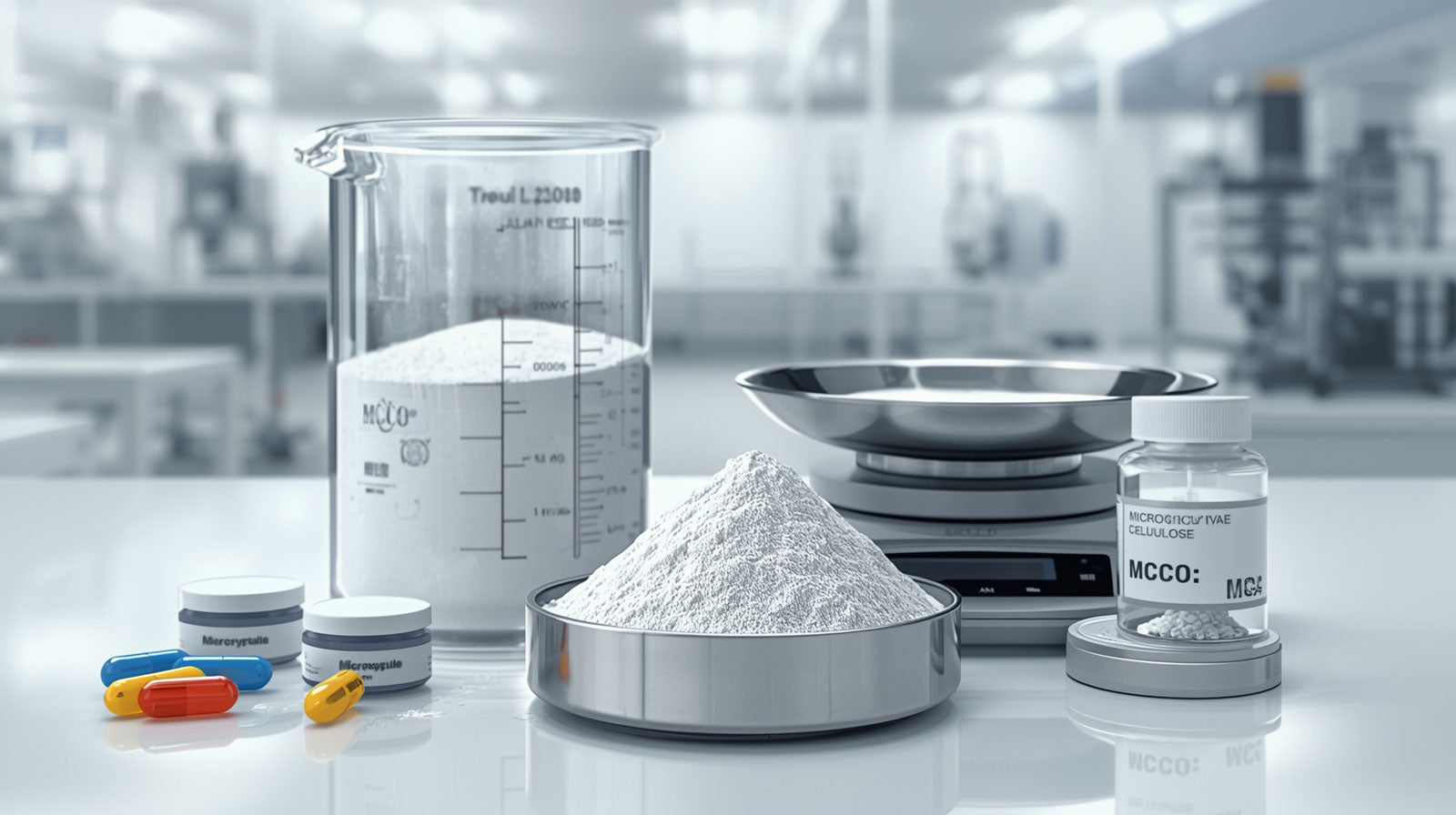
Malic Acid Benefits and Uses Guide
SUBSCRIBE TO OUR BLOG
Promotions, new products, and recipes.
Malic acid is a commonly used compound in various industries, from food to skincare to pharmaceuticals. But, did you know that it also has numerous potential health benefits? This comprehensive guide will explore the benefits and uses of malic acid, including its potential side effects and precautions.
Whether you are looking to incorporate malic acid into your diet, skincare routine, or curiosity about the science behind this natural compound, this guide has got you covered. Keep reading to discover the power of malic acid!
Key Takeaways:
- Malic acid is a natural compound with various applications in different industries.
- It has numerous health benefits, from supporting digestive health to enhancing energy levels.
- Malic acid is commonly used in food production, skincare, cosmetics, and pharmaceuticals.
- It is found in high concentrations in apples and is essential for the characteristic flavor and properties of the fruit.
- Malic acid supplements are available, and caution must be exercised while consuming them.
Understanding Malic Acid
Malic acid, a naturally occurring compound found in various fruits and vegetables, is commonly used in several industries due to its unique chemical properties.
It is an organic dicarboxylic acid with the chemical formula C4H6O5, characterized by its sour taste and solubility in water. It is widely used in the food industry as a flavor enhancer, preservative, and acidulant. Malic acid is also used in the production of various cosmetic and personal care products.
This compound has several potential health benefits as well. Malic acid is known to improve muscle performance and decrease fatigue, making it a popular ingredient in supplements for athletes and those dealing with chronic fatigue syndrome. In addition, it has been shown to improve digestion and alleviate symptoms of acid reflux.
One of the significant benefits of malic acid is its antioxidant properties. It is known to neutralize free radicals that can damage cells. Furthermore, malic acid has anti-inflammatory properties that can decrease symptoms of pain and inflammation. Its ability to exfoliate skin cells make it a common ingredient in skincare products, particularly those designed to brighten and rejuvenate the skin.
All of these properties make malic acid a versatile and beneficial compound used in various applications.
Health Benefits of Malic Acid
Malic acid offers numerous benefits for your health. Here are some of the potential advantages of incorporating this natural compound in your wellness routine:
- Supports digestive health: Malic acid can promote healthy digestion and alleviate symptoms of digestive issues such as bloating and constipation.
- Boosts energy levels: This compound helps convert food into energy, which can increase your overall energy levels and combat fatigue.
- Enhances athletic performance: Athletes and fitness enthusiasts can benefit from malic acid's ability to reduce muscle soreness and improve exercise endurance.
- May improve skin health: Malic acid is commonly used in skincare products due to its exfoliating and moisturizing properties. It can also help reduce the appearance of fine lines and wrinkles.
- Supports liver function: This compound can help prevent liver damage and improve liver function, which is essential for overall health and well-being.
If you're looking to increase your intake of malic acid, supplements are a convenient option.
Note: Consult with your healthcare provider before incorporating any new supplements into your routine.
Incorporating Malic Acid in Food
Malic acid is commonly used in the food industry to enhance the flavor and preservation of various products.
One of the most popular uses of malic acid in food is as a tart flavoring agent in candies, jams, and jellies, adding a tangy taste that balances the sweetness. It is also utilized in baking as a leavening agent and in marinades for meats as a tenderizer.
Another important application of malic acid in food is as a natural preservative. It helps to maintain the freshness and extend the shelf life of processed foods such as snacks, beverages, and frozen products.

Potential Side Effects of Malic Acid
While malic acid is generally safe for consumption, there are some potential side effects to be aware of. These side effects are typically mild and uncommon, but it's still important to understand them before using malic acid supplements.
Gastrointestinal Issues
In some cases, malic acid supplements may cause gastrointestinal discomfort, such as nausea, vomiting, or diarrhea. If you experience any of these symptoms after taking malic acid, stop use immediately and consult your healthcare provider.
Interference with Medical Conditions and Medications
If you have any pre-existing medical conditions, such as kidney disease or liver problems, or if you're taking any medications, it's essential to check with your healthcare provider before using malic acid supplements. Malic acid may interact with certain medications, so it's crucial to use caution and be aware of potential drug interactions.
Allergic Reactions
In rare cases, malic acid can cause an allergic reaction. Symptoms of an allergic reaction may include itching, hives, swelling, or difficulty breathing. If you experience any of these symptoms, seek medical attention immediately.
Overall, it's important to use malic acid supplements as directed and to consult with your healthcare provider before use, especially if you have underlying medical conditions or are taking any medications.
Malic Acid for Skincare
If you're looking for a natural way to revamp your skincare routine, malic acid might be just what you need. This alpha-hydroxy acid is found in various fruits, including apples, and offers a range of benefits for your skin.
Exfoliation: Malic acid is a gentle exfoliant, helping to slough off dead skin cells and reveal a brighter, smoother complexion.
| Benefits of Malic Acid for Skincare | How to Incorporate Malic Acid into Your Skincare Routine |
|---|---|
| Promotes a youthful complexion by improving skin texture and reducing the appearance of fine lines and wrinkles. | Add an apple cider vinegar toner to your daily routine or choose skincare products that contain malic acid. |
| Helps to regulate sebum production, making it ideal for oily and acne-prone skin types. | Use a malic acid-infused face mask once a week or try a malic acid peel for a deeper exfoliation. |
| Reduces the appearance of dark spots and hyperpigmentation by promoting cell turnover. | Pair malic acid with other skin-brightening ingredients like vitamin C for maximum results. |
Hydration: Malic acid is a natural humectant, meaning it helps to attract and retain moisture in the skin.
Stimulation of Collagen Production: By boosting collagen production, malic acid can help improve skin elasticity and firmness.
"Malic acid is a popular ingredient in many skincare products, including toners, serums, and masks. It's especially effective when combined with other gentle exfoliants like glycolic or lactic acid."
Key Takeaways:
- Malic acid is an alpha-hydroxy acid that offers numerous benefits for your skin.
- It can help exfoliate dead skin cells, regulate sebum production, and reduce the appearance of fine lines and wrinkles.
- Malic acid is also a natural humectant, helping to hydrate and firm the skin.
- You can incorporate malic acid into your skincare routine through apple cider vinegar toners, malic acid-infused face masks, and other skincare products that contain this compound.
Malic Acid in Wine Production
Malic acid is an essential component in the wine-making process, affecting the taste and acidity of various wine varieties. During the fermentation process, malic acid is converted into lactic acid, which creates a smoother, less tart taste in the wine.
However, not all wines undergo this conversion process, and the presence of malic acid in some wines can contribute to their unique tart and tangy flavors. Winemakers must carefully manage and control the levels of malic acid in their wine to achieve the desired taste and acidity.
Some winemakers intentionally leave a higher level of malic acid in their wine to create a more pronounced taste, while others prefer a lower level for a smoother finish.
The amount of malic acid in wine can also be influenced by various factors, such as grape variety, climate, and harvest time. For example, cooler climates and earlier harvests tend to produce grapes with higher malic acid content.
Overall, malic acid plays a crucial role in the taste and quality of many wines. Its unique properties and effects on wine make it an essential consideration for any winemaker or wine enthusiast.
Apples are a popular fruit that boasts a unique combination of flavors and nutritional benefits. One of the compounds responsible for the distinctive tartness and acidity of apples is malic acid. This organic acid naturally occurs in many fruits, including apples, as well as in some vegetables.
While the amount of malic acid in apples can vary depending on the variety and ripeness of the fruit, it's an essential component of their flavor profile. Malic acid contributes to the taste and aroma of apples, making them a popular ingredient in many culinary creations, such as pies, sauces, and jams.
Besides its role in enhancing the flavor of apples, malic acid also offers several nutritional benefits. It is rich in antioxidants and has been shown to improve digestion and promote healthy skin.
If you're a fan of apples, you're likely enjoying the benefits of malic acid without even knowing it!
Other Uses of Malic Acid
While malic acid is primarily associated with the food industry and skincare, it also has various other applications in different sectors.
Pharmaceuticals
Malic acid is used in some medicines and supplements as a natural flavoring agent and to help with absorption. It also has muscle-relaxing properties and is used in pain relief creams and ointments. Its potential to reduce chronic fatigue syndrome symptoms is currently being researched.
Cosmetics
The exfoliating and anti-aging properties of malic acid make it a popular ingredient in many cosmetic products, including facial peels, masks, and serums. It can help to improve the hydration, texture, and firmness of the skin, and reduce the appearance of fine lines and wrinkles.
"Malic acid is valued for its unique ability to improve the texture and overall look of the skin. Its exfoliating properties help to remove dead skin cells, unclog pores, and promote cell renewal, giving the skin a youthful glow."
Cleaning Products
Malic acid is a useful ingredient in cleaning products, particularly those designed for removing hard water deposits and limescale. Its natural acidity can dissolve mineral buildup and stains without leaving behind any harmful byproducts or chemical residue.
Tablet Manufacturing
Malic acid is sometimes used in the manufacture of tablets, especially those that require a delayed release. It can coat and protect active ingredients, ensuring they reach the intended part of the body without breaking down too quickly or being destroyed by stomach acid.
The Science Behind Malic Acid
Malic acid, also known as apple acid, is widely used in various industries and has gained attention in the health and wellness community for its potential benefits. But what makes malic acid so unique and beneficial? Let's delve into the scientific research and studies that have explored the benefits and potential uses of malic acid.
When consumed, malic acid is converted into malate, which plays a crucial role in our body's energy production process, the Krebs cycle. According to a study published in the Journal of the International Society of Sports Nutrition, supplementation with malic acid has been shown to increase ATP production, which could lead to improvements in physical performance and reduced muscle fatigue.
Malic acid has also been studied for its potential to support digestive health. According to a review published in the Journal of Gastroenterology and Hepatology, malic acid has been shown to exhibit gastrointestinal protective effects, including reducing inflammation and regulating gut microbiota.
Furthermore, malic acid has been found to have antioxidant properties, which could protect our cells from damage caused by free radicals. A study published in the Journal of Medicinal Food found that malic acid exhibited strong antioxidant activity in vitro.
Overall, the scientific research on malic acid is promising, suggesting numerous potential benefits for our health and well-being. Consider incorporating malic acid-rich foods into your diet or talk to your healthcare provider about the potential benefits of malic acid supplements.
Where to Find Malic Acid Supplements
If you're interested in incorporating malic acid supplements into your wellness routine, there are several options available to you. Many health food stores and online retailers carry a variety of malic acid supplements, making it easy to find a product that suits your needs.
When choosing a malic acid supplement, it's important to look for a high-quality product from a reputable manufacturer. Read reviews and check the ingredient list to ensure that you're getting a pure and effective supplement. Additionally, speak with your healthcare provider to determine if malic acid supplements are right for you and to ensure that they won't interact with any medications you may be taking.
Top Malic Acid Supplements:
| Product Name | Brand | Price Range |
|---|---|---|
| Malic Acid Capsules | Now Foods | $10-$20 |
| Malic Acid Powder | BulkSupplements | $15-$30 |
| Malic Acid + Magnesium Capsules | Source Naturals | $20-$30 |
Conclusion
As we've explored in this comprehensive guide, malic acid is a versatile and beneficial compound with numerous uses across various industries. From its potential health benefits to its role in food, skincare, and wine production, malic acid can enhance our lives in countless ways.
While malic acid supplements are readily available, it's essential to understand the potential side effects and use them safely and responsibly. As with any new supplement or product, it's wise to consult a healthcare professional before incorporating them into your routine.
Overall, malic acid offers a natural, safe, and effective way to improve our health and well-being. We encourage you to explore the potential of this compound in your life and discover the benefits for yourself.
FAQ
What is malic acid?
Malic acid is a naturally occurring compound found in various fruits and vegetables, particularly apples. It is a dicarboxylic acid with a tart taste and is often used as a food additive and flavor enhancer.
What are the benefits of malic acid?
Malic acid offers several benefits, such as improving digestion, boosting energy levels, promoting oral health, and supporting skin health. It also helps in maintaining proper muscle function and supporting overall wellness.
How can malic acid be used in food?
Malic acid is commonly used in food products to add a tangy taste and enhance flavors. It is often found in sour candies, carbonated beverages, fruit-based products, and salad dressings. It also acts as a natural preservative in certain food items.
Are there any side effects of malic acid?
While malic acid is generally safe for consumption, excessive intake may lead to digestive issues such as diarrhea and stomach cramps. Some individuals may also be allergic or sensitive to malic acid, resulting in allergic reactions or skin irritation.
Can malic acid be beneficial for skincare?
Yes, malic acid is commonly used in skincare products for its exfoliating properties. It helps in removing dead skin cells, improving skin texture, and promoting a youthful complexion. It can also help reduce the appearance of fine lines and wrinkles.
What role does malic acid play in wine production?
Malic acid is naturally present in grapes, but during the fermentation process, it can be converted into lactic acid. Winemakers control the levels of malic acid to achieve the desired taste and acidity in different wine varieties. Some wines undergo malolactic fermentation, where malic acid is converted to lactic acid, resulting in a smoother taste.
How does malic acid contribute to the flavor of apples?
Malic acid gives apples their characteristic tart taste. It contributes to the overall flavor profile of apples, making them refreshing and crisp. The presence of malic acid in apples also helps to balance their natural sweetness.
What are some other uses of malic acid?
Malic acid finds application in various industries. It is used in pharmaceuticals as an excipient in medications and supplements. In cosmetics, it is used in skincare and hair care products. It is also found in cleaning products due to its ability to remove stains and mineral deposits.
Where can I find malic acid supplements?
Malic acid supplements can be found in health food stores, online retailers, and pharmacies. It is essential to choose a reputable brand and consult with a healthcare professional before starting any new dietary supplement regimen.

|
About the Author Ed is the founder of Cape Crystal Brands, editor of the Beginner’s Guide to Hydrocolloids, and a passionate advocate for making food science accessible to all. Discover premium ingredients, expert resources, and free formulation tools at capecrystalbrands.com/tools. — Ed |
Enjoyed this post? Subscribe to The Crystal Scoop
Food-science tips, ingredient know-how, and recipes. No spam—unsubscribe anytime.
- Choosing a selection results in a full page refresh.







